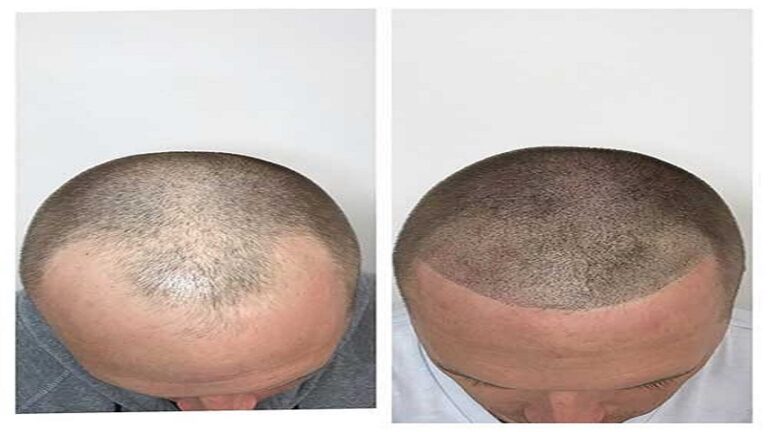Dandruff can feel like an uninvited guest that just won’t leave. It’s flaky, itchy, and often shows up at the most inconvenient times — think dark clothes and important meetings. But here’s the good news: dandruff is totally manageable with the right care, consistent habits, and proven treatments.
Whether your scalp is dry, oily, or somewhere in between, here’s how to get rid of dandruff — using expert-approved methods that actually work.
Understanding Dandruff: More Than Just Flakes
Dandruff is often mistaken for just dry scalp, but it’s actually more complex. Dermatologists explain that it usually results from an overgrowth of a yeast-like fungus called Malassezia that feeds on scalp oils. This leads to inflammation, flaking, and itchiness.
Other triggers include:
- Hormonal changes
- Stress
- Poor diet
- Infrequent hair washing
- Sensitivity to hair products
- Skin conditions like psoriasis or eczema
Knowing what’s behind your dandruff is the first step in treating it effectively.
Top Expert-Recommended Treatments for Dandruff
1. Use the Right Shampoo (and Use It Properly)
Not all dandruff shampoos are created equal — and using them incorrectly can reduce their effectiveness. Experts suggest rotating between active ingredients for the best results:
- Ketoconazole: Fights fungal growth.
- Zinc Pyrithione: Kills yeast and bacteria.
- Selenium Sulfide: Reduces oil and fungal presence.
- Salicylic Acid: Gently exfoliates the scalp.
- Coal Tar: Slows skin cell turnover.
Pro Tip: Leave the shampoo on your scalp for 3–5 minutes before rinsing. Let the active ingredients do their job.
2. Exfoliate the Scalp
Just like your face, your scalp can benefit from exfoliation to remove dead skin cells and product buildup. Use:
- Scalp scrubs (once a week)
- Chemical exfoliants with BHA (like salicylic acid)
- Gentle scalp brushes during shampooing
This keeps the follicles clean and reduces flaking over time.
3. Nourish with Scalp Oils
Contrary to what you might think, oils can help — if used the right way. Certain natural oils have antifungal and anti-inflammatory properties:
- Tea Tree Oil: Powerful antimicrobial — mix with carrier oil.
- Coconut Oil: Moisturizes and soothes irritation.
- Neem Oil: Fights fungal infections and soothes itching.
Apply oil 30 minutes before washing, and make sure to rinse thoroughly.
4. Improve Your Hair Washing Routine
Consistency is key. Washing too infrequently can lead to oil buildup, while overwashing may dry out your scalp.
Experts recommend:
- Shampooing 2–3 times per week with anti-dandruff products
- Avoiding hot water, which can strip natural oils
- Massaging the scalp during washing to improve blood flow and exfoliation
5. Adjust Your Diet for Scalp Health
Your scalp’s health reflects your overall nutrition. Include foods rich in:
- Omega-3 fatty acids (salmon, flaxseed)
- Zinc (pumpkin seeds, legumes)
- Vitamin B complex (eggs, bananas, spinach)
- Probiotics (yogurt, fermented foods)
Avoid sugary, overly processed foods that can increase inflammation.
6. Use Apple Cider Vinegar as a Natural Remedy
This pantry staple has a pH-balancing and antimicrobial effect on the scalp. Mix one part ACV with two parts water and use it as a pre-wash rinse. Leave it on for 10–15 minutes, then shampoo as usual.
It helps reduce itchiness and flaking naturally, but always do a patch test first.
7. Try Scalp Serums or Leave-In Treatments
Specialized leave-in products can help control dandruff between washes. Look for serums containing:
- Niacinamide (soothes and reduces redness)
- Peppermint or eucalyptus oil (cooling and anti-inflammatory)
- Climbazole or Octopirox (anti-fungal agents)
Apply directly to the scalp and massage gently. These treatments work best when used consistently over several weeks.
8. Reduce Stress Levels
Stress throws off your hormonal balance and immune function, often worsening dandruff. Incorporate regular stress-relief activities into your day:
- Meditation or breathwork
- Regular physical activity
- Adequate sleep
- Mindfulness or journaling
A calm mind contributes to a healthier scalp.
9. Be Mindful of Hair Products
Many styling products contain alcohol, fragrances, and silicones that can irritate the scalp. Choose non-comedogenic, sulfate-free, and fragrance-free products whenever possible.
Also, avoid excessive use of dry shampoos — they can clog pores and worsen dandruff if not washed out regularly.
10. Know When to Seek Professional Help
If dandruff persists despite home treatments, consult a trichologist or dermatologist. Chronic scalp conditions like:
- Psoriasis
- Seborrheic dermatitis
- Contact dermatitis
- Fungal infections
…require prescription treatments, medicated foams, or even oral antifungals.
Final Thoughts: Flake-Free is Possible
Dandruff can be stubborn, but with a tailored approach and a bit of patience, it’s entirely treatable. By combining dermatologist-recommended products, natural remedies, and a scalp-friendly lifestyle, you can restore balance and feel confident again — no flakes in sight.
Consistency is your best friend, and your scalp will thank you for the care.
Regain your confidence with the best hair transplant clinic in Vadodara.
Book your consultation today – natural results await!


